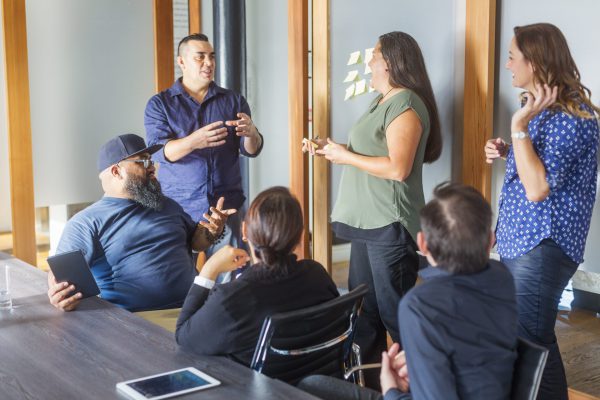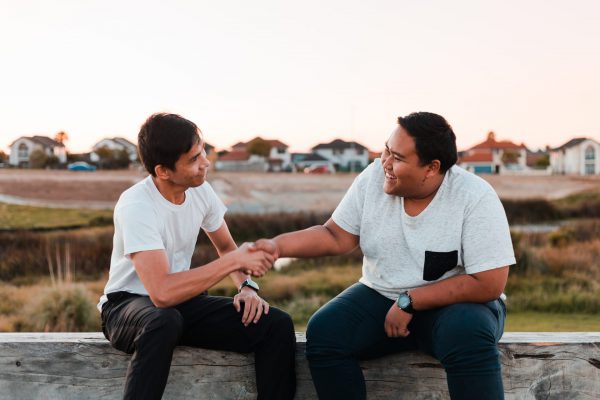Educational opportunities for all
-
More opportunities for lifelong learning
Transformation of the education system to encourage young people to be more inclusive has been highlighted; however, participants also identified a need for more community-wide educational opportunities. Workplaces, media representation and community classes were all seen as avenues to grow awareness and knowledge of subjects like Te Tiriti, under-represented cultures and religions, anti-racism and disability rights.
Greater education and exposure to other cultures, beliefs, backgrounds, practices and other peoples life experiences that enables people to see past stereotypes and challenges assumptions.
-
Greater education and exposure to other cultures, beliefs, backgrounds, practices and other peoples life experiences that enables people to see past stereotypes and challenges assumptions.
-
I’ve heard some of my friends, their experience of racism and discrimination. I’m drawing from that experience from them. It’s clear how some people haven’t really, haven’t understood that yet.
-
Education is really the most fundamental way to get people to understand. A lot of the situation we see now stems from ignorance, people don’t know, and it leads to fear. When you fear, you act negatively.
-
Making those kinds of things accessible to everyone [education: treaty and Māori culture]. Advising people who are coming to NZ that they need to know about these kinds of things. It’s applicable to day-to-day life as well as work.
-
The main thing is to educate people to accept that people have different faith, different ethnicity, that they can be attracted to the same sex, all sorts of differences.
-
They could do more awareness, link it to mental health. With my example, if I was depressed and people weren’t very inviting, could do damage to someone who was trying to reach out.
-
Kids at primary school get taught about how to be inclusive, adults don’t. Ads on TV maybe. All the organisations could have their own little, could be included in their policies how to be nice to everyone, joining.
-
I did outreach when I got here, I knocked the doors. I asked them, “do you believe in human rights?”, and they say “yes”, and I said “what are they?” And they were “ah?”. Only 10 out of 300 could say what they were, people who were advocates didn’t know what they were, couldn’t’ say what they were.
-
-
Learning about important topics
Some issues divide people in Aotearoa New Zealand, but participants noted problems are linked to ignorance, fear and misunderstanding. To support belonging and inclusivity, people need to learn how to talk about sensitive issues without causing harm. Participants identified that education needs to address all forms of discrimination. This would mean addressing power dynamics, including essential topics like white privilege, colonisation, and Te Tiriti o Waitangi.
The exposure to stuff that should make you uncomfortable is really important – and to go through a bit of pain with it. I mean my ancestors benefitted from a lot of land transfer when they came out from England and settled in Taranaki area. So, I benefited from it too.
-
The exposure to stuff that should make you uncomfortable is really important – and to go through a bit of pain with it. I mean my ancestors benefitted from a lot of land transfer when they came out from England and settled in Taranaki area. So, I benefited from it too.
-
One of the concerns I have, there is talk at Otago medical school of cutting back on Māori students. We need to have representation of our communities, we need to see that diversity. Inclusivity isn’t about including people, it’s about the legal frameworks and being able to give people the equal education opportunities and equal employment opportunities. That has to be much more strengthened.
-
People don’t know how to handle that, [how to] understand a different worldview. So we’re trying to educate people here [about diversity and inclusivity].
-
Also, the difficulty people have around trying to understand and access the history around the treaty and tangata whenua. That would help Māori people retain their tangata whenua-ness. I see it in the distance, this access.
-
So I used what I learned to find information [in order] to find what we need — I used libraries, museums. I look at what’s happened to our people, and now we have to be very aware of the kind of things that happen around us, like the rise of the right wing extremists, and things like Muslims who have been demonised, and how Māori people are demonised and made to look slightly barbaric, and aren’t we lucky that white people come in to save us. But the quiet racism, you can’t put your finger on it. It’s like a viral infection - it’s there but you can’t see it.
-
In Treaty workshops, 20% were fine about the history, or knew it. 20% are disruptive. But it’s the 60% in the middle who changed and when they understood [the history of colonisation].
-
I’ve learned a lot from the migrants that I’ve met. I don’t know much about refugees. The more I see of struggles and what they endure to be part of our society, what we take for granted, you learn more about yourself. Unfortunately my generation are very set in their ways. They tend to say, “you’re welcome here as long as you do it my way.” They won’t look at someone else’s point of view.
-
-
Teach people how to fully participate in Aotearoa New Zealand
Participants identified a need for targeted civics education for students, migrants and former refugees. Actively teaching about the political process, voting, rights and responsibilities for students, migrants, and refugees could support full participation. Furthermore, creating opportunities for migrants and refugees to learn about Te Tiriti, te reo Māori and tikanga were also seen as essential to support belonging and inclusion.
I took an adult ed class on Sociology, and there was a whole thing about the Treaty and history of the Treaty and history of NZ. And everyone should get that. There should be courses to give people an overview of those things. And to become citizens, you should have courses on parliament and how the govt works — civics, and history, and the Treaty, how to vote, how to be a responsible citizen. I know kids get Treaty and history at school, but adults like me who come here [to NZ as an adult] need this [history and Treaty]. And high school students should have civics classes.
-
I took an adult ed class on Sociology, and there was a whole thing about the Treaty and history of the Treaty and history of NZ. And everyone should get that. There should be courses to give people an overview of those things. And to become citizens, you should have courses on parliament and how the govt works — civics, and history, and the Treaty, how to vote, how to be a responsible citizen. I know kids get Treaty and history at school, but adults like me who come here [to NZ as an adult] need this [history and Treaty]. And high school students should have civics classes.
-
Part of the orientation [the orientation at the refugee centre in Manakau] for refugees needs to be more about laws and ethics of NZ and there needs to be more follow up on that, like after they finish the orientation and are living in NZ, there needs to be more to help them learn the laws and ethics of NZ.
-
Kids don’t learn much about civics and government. They are in their own little worlds with [video] games and social media.
-
Part of future trajectory in diversity, more solidarity between tangata whenua and ppl from other ethnic groups. Not enough forums for that kind of engagement. Only person of Asian descent there. I think ethnic migrants and ethnic communities can play a real role in fostering a sense of solidarity by engaging in indigenous culture. I would make it mandatory for ppl coming into the country to learn basics of te reo or tikanga. In the NZ schooling system, there’s a gap in what’s been done already. What it means to engage with Māori communities, history of the treaty. That creates more fracturing and division amongst our ethnic community.
-
Worry about refugees who are disabled. And how they learn about disability support and how they learn about it. Being welcomed in there own dgo’s and they have a obligations from an outreach perspective.
-





